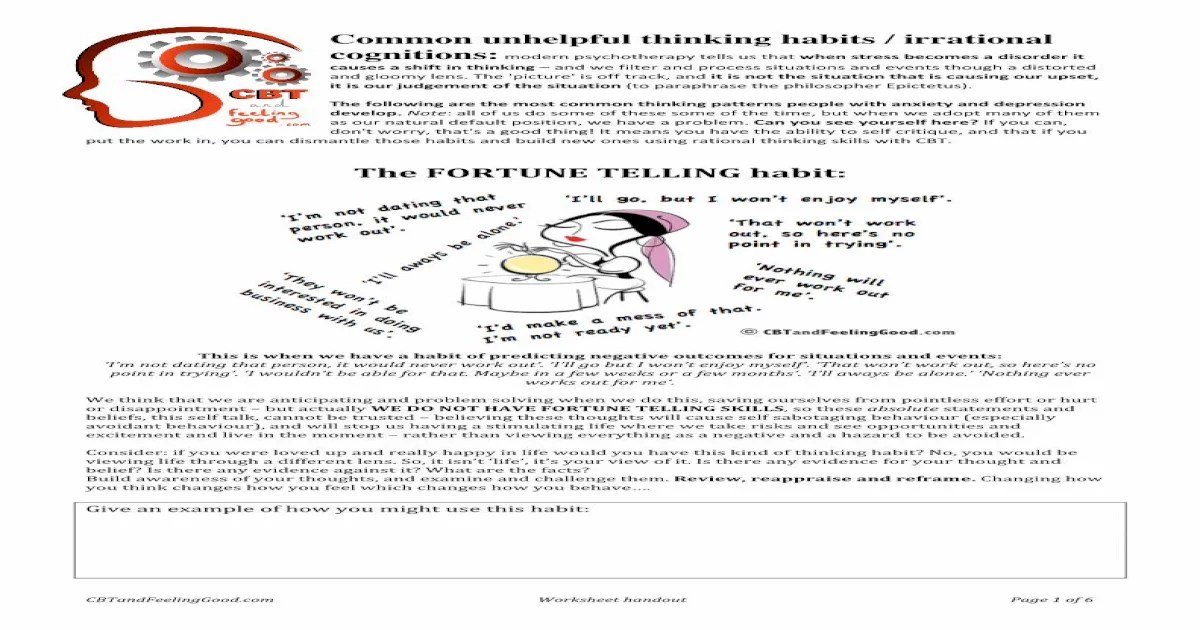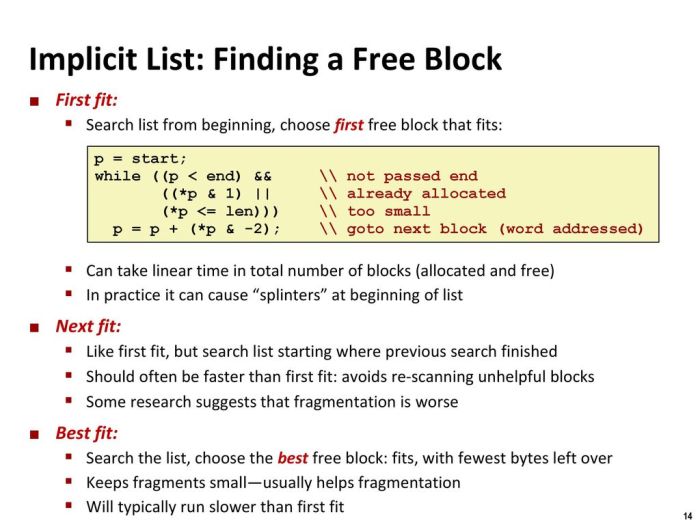Inaccurate or unhelpful cognitions should be addressed by: – Inaccurate or unhelpful cognitions can significantly impact mental health and well-being. This article delves into the concept of cognitive distortions, exploring their effects and providing evidence-based strategies for addressing them.
Cognitive distortions are flawed thought patterns that lead to inaccurate perceptions and negative emotions. By understanding and challenging these distortions, individuals can improve their mental health and overall well-being.
Cognitive Distortions

Cognitive distortions are patterns of thinking that lead to inaccurate or unhelpful conclusions. They can have a significant impact on mental health, contributing to conditions such as anxiety, depression, and low self-esteem.Common cognitive distortions include:
All-or-nothing thinking
Seeing things as either all good or all bad, with no shades of gray.
Overgeneralization
Making broad conclusions based on a single or limited number of experiences.
Mental filtering
Focusing on the negative aspects of a situation while ignoring the positive.
Catastrophizing
Exaggerating the potential negative consequences of a situation.
Personalization
Blaming oneself for events that are not within one’s control.
Techniques for Identifying Cognitive Distortions
Identifying cognitive distortions can be challenging, but there are several methods to assist in this process:
-
-*Self-reflection
Paying attention to one’s thoughts and identifying patterns of thinking that may be distorted.
-*External feedback
Seeking feedback from trusted individuals who can provide an objective perspective.
-*Challenging and questioning negative thoughts
Examining the evidence for and against negative thoughts, and considering alternative interpretations.
Strategies for Addressing Inaccurate or Unhelpful Cognitions
Addressing inaccurate or unhelpful cognitions is crucial for improving mental health and well-being. Several evidence-based strategies can be employed:
-
-*Cognitive restructuring
Identifying and challenging distorted thoughts, replacing them with more balanced and realistic ones.
-*Mindfulness techniques
Paying attention to the present moment without judgment, which can help reduce the influence of negative thoughts.
| Strategy | Description |
|---|---|
| Cognitive restructuring | Identifying and challenging distorted thoughts, replacing them with more balanced and realistic ones. |
| Mindfulness techniques | Paying attention to the present moment without judgment, which can help reduce the influence of negative thoughts. |
| Thought stopping | Interrupting negative thought patterns by using a physical cue or mental command. |
| Positive self-talk | Challenging negative thoughts by replacing them with positive and encouraging ones. |
Benefits of Addressing Inaccurate or Unhelpful Cognitions, Inaccurate or unhelpful cognitions should be addressed by:
Addressing inaccurate or unhelpful cognitions has numerous benefits, including:
- Improved mood and reduced anxiety
- Increased self-esteem and confidence
- Enhanced problem-solving abilities
- Greater resilience to stress
- Improved relationships with others
Professional Support for Addressing Cognitive Distortions
Professional support may be necessary for individuals who struggle to identify and address cognitive distortions on their own. Therapists and counselors can provide guidance and support in this process.Different types of therapies that can help with cognitive distortions include:
- Cognitive-behavioral therapy (CBT)
- Dialectical behavior therapy (DBT)
- Rational emotive behavior therapy (REBT)
Popular Questions: Inaccurate Or Unhelpful Cognitions Should Be Addressed By:
What are cognitive distortions?
Cognitive distortions are flawed thought patterns that lead to inaccurate perceptions and negative emotions.
How can I identify cognitive distortions in myself?
Methods for identifying cognitive distortions include self-reflection, external feedback, and challenging negative thoughts.
What are some strategies for addressing inaccurate or unhelpful cognitions?
Evidence-based strategies include cognitive restructuring, mindfulness techniques, and professional support.
What are the benefits of addressing inaccurate or unhelpful cognitions?
Benefits include improved mental health, reduced negative emotions, and enhanced well-being.

